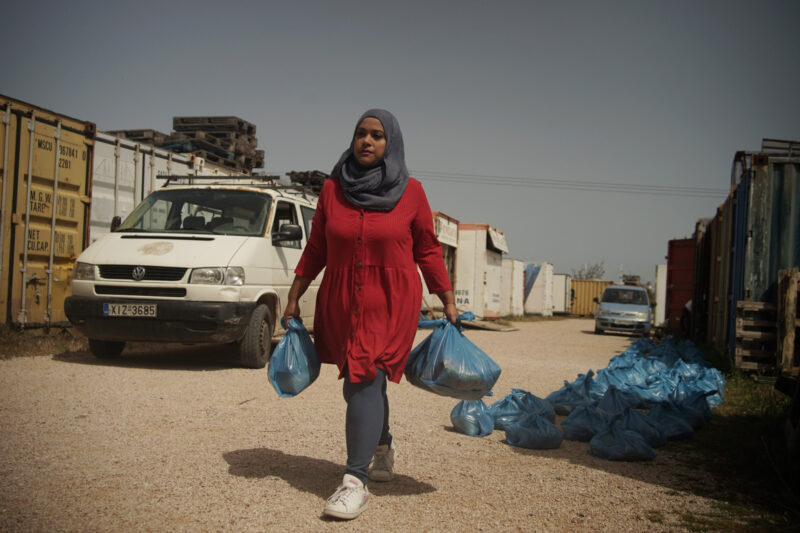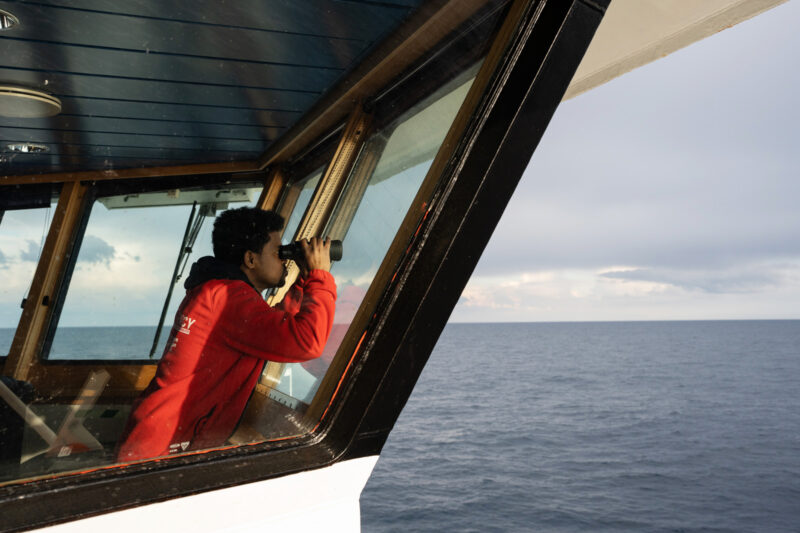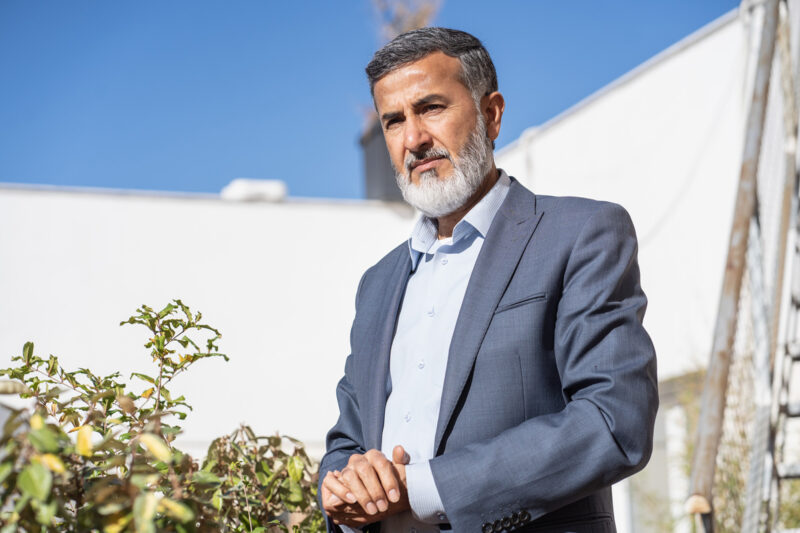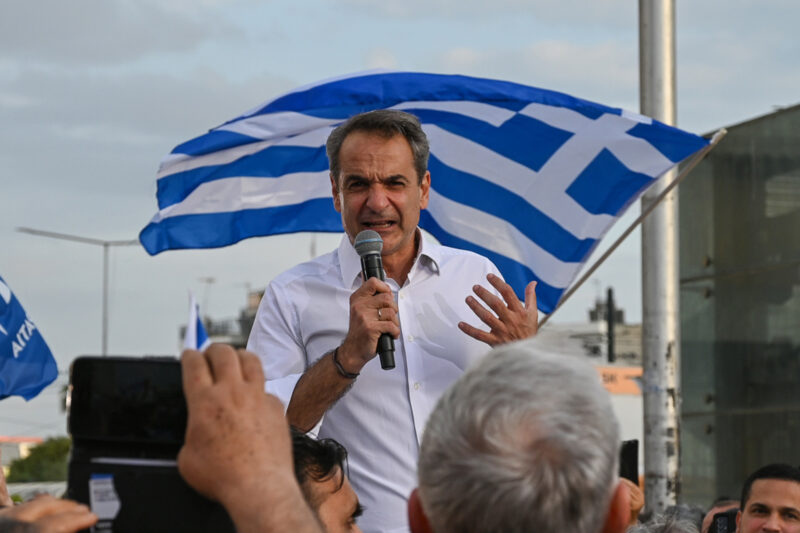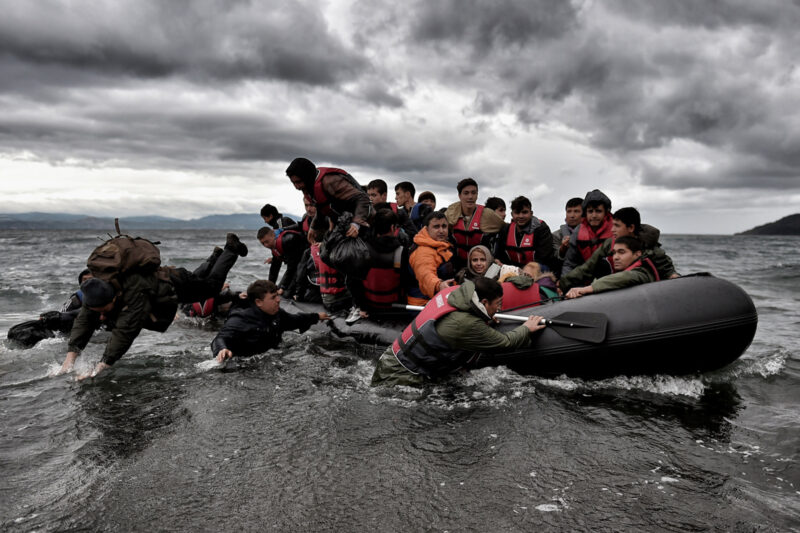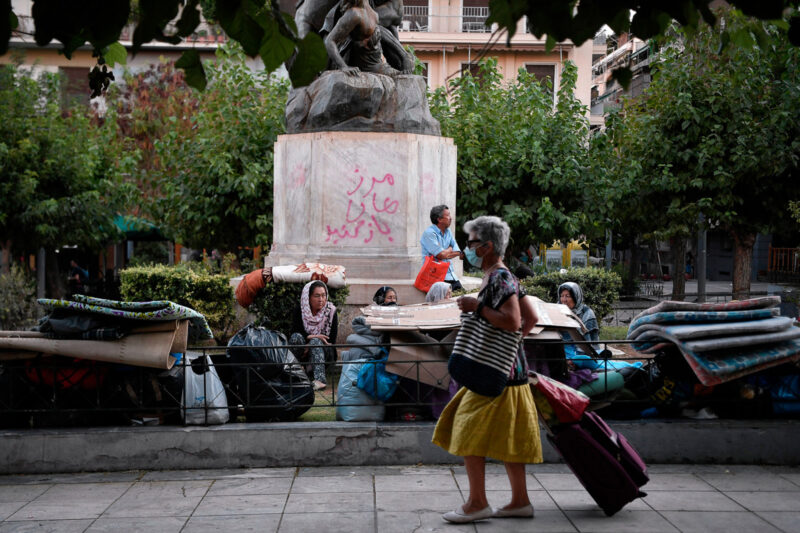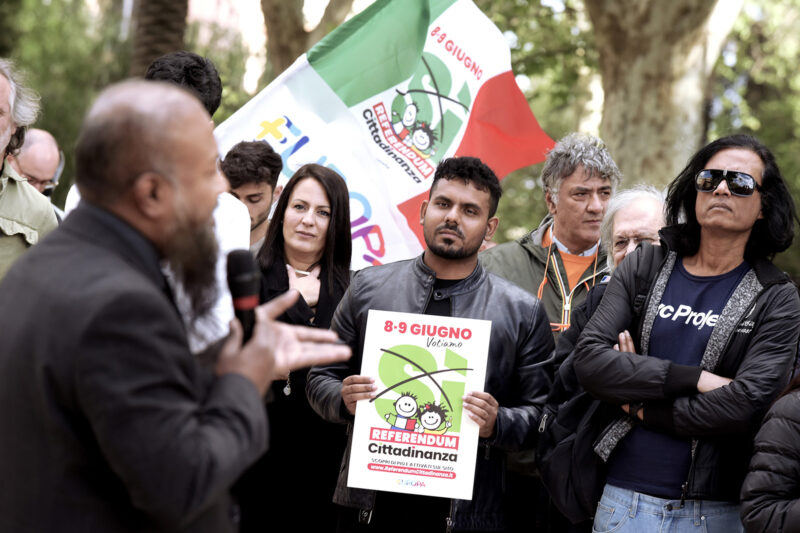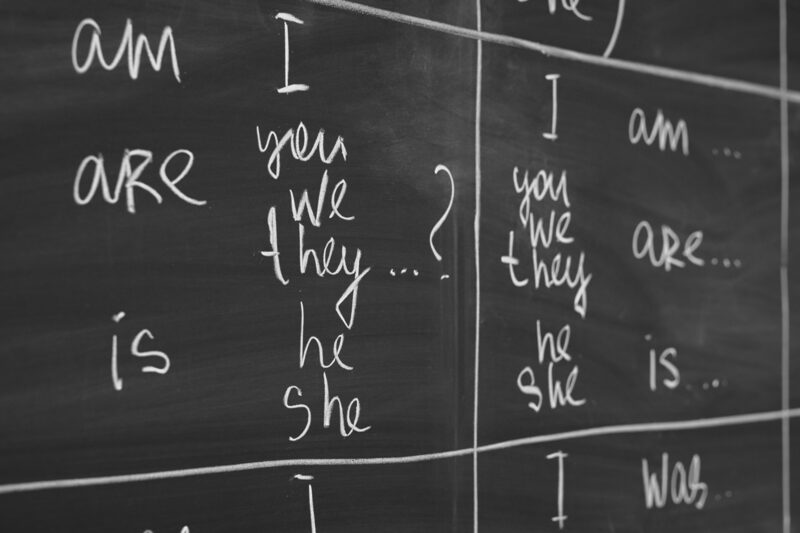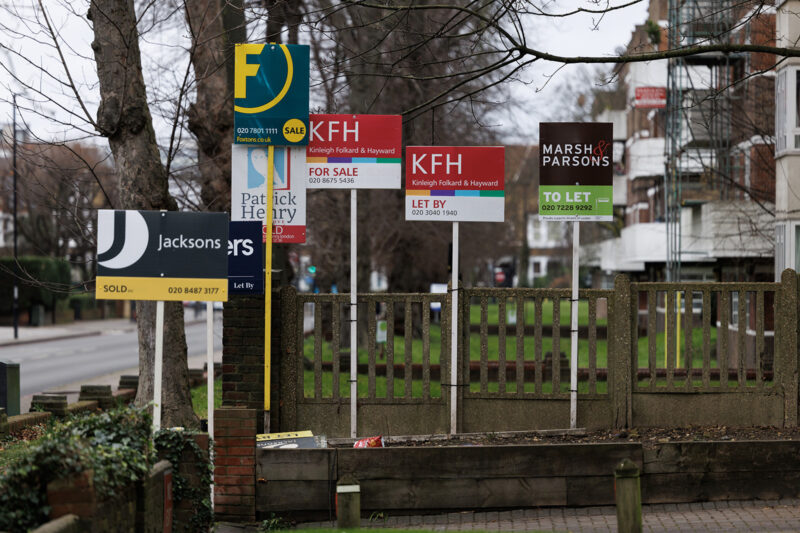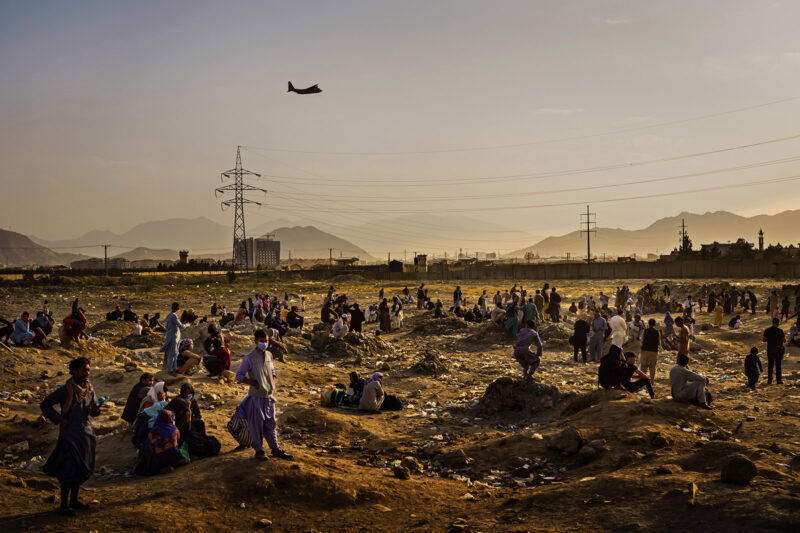NGOs call for the closure of ‘inhumane and degrading’ refugee camp on Greek island
Just two years after the hi-tech facility opened on Samos — at a cost of €43m to the EU — residents complain of lengthy water cuts, poor hygiene and police brutality
–
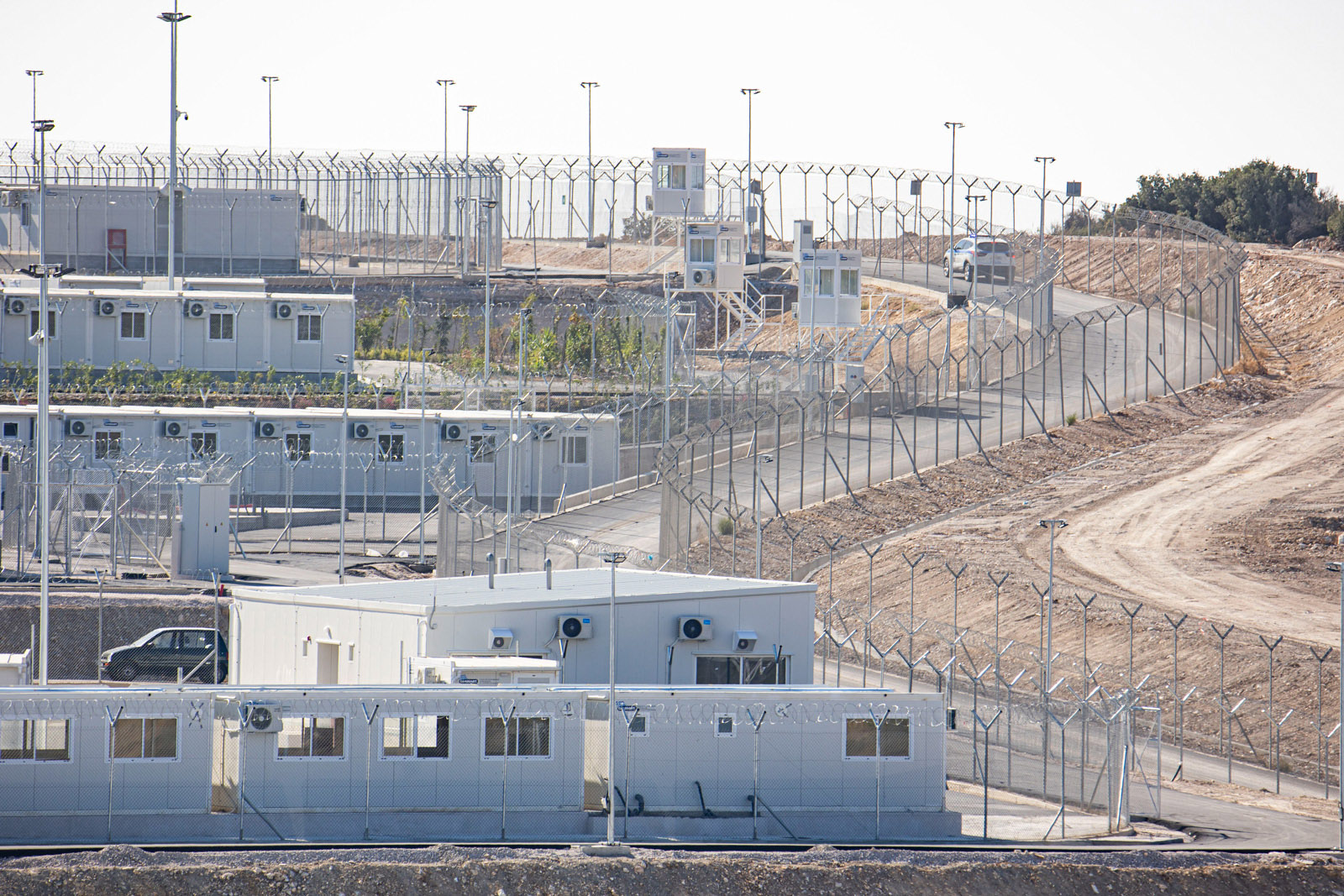
Aid agencies have warned that thousands of asylum seekers held at a new, hi-tech detention facility on the Greek island of Samos are living in disgraceful conditions. Residents say they are forced to endure lengthy water cuts and police violence. Two years after the camp opened, at a cost of €43m to the European Union, 20 NGOs have signed a statement warning that detention in the facility amounts to “inhumane and degrading treatment” and calling for its closure.
I Have Rights, a non-profit organisation providing legal advice for people seeking asylum in Samos, is among the signatories. Ella Dodd, the organisation’s advocacy and strategy coordinator, describes multiple problems with the camp, from its registration process, which routinely takes longer than the legal limit of 25 days, to poor-quality food.
“There’s nowhere to wash yourself or your clothes,” Dodd said, explaining that for several months the camp’s water supply has been cut for days at a time and runs only for a few hours when it’s available. The ministry chose the site despite having been warned that it had unreliable access to running water. She added: “This is no accident.”
One of the closest Greek islands to Turkey, Samos has been a main entry point to Europe for people seeking asylum in the EU since 2015-16, when more than one million arrived in Greece. When the new facility opened at Zervou, a remote part of the island, in September 2021, Greece’s then migration minister Notis Mitarachi promised that it would “give back the lost dignity to people seeking international protection”.
The closed controlled access centre (CCAC) at Zervou was billed as a hi-tech replacement for a camp near the island’s capital Vathy, which opened in 2016 with capacity to accommodate 648 people but soon became a sprawling tent city. Before its closure, close to 8,000 people lived in the Vathy camp, plagued by rats, with limited access to toilets.
Zervou’s opening attracted international attention and high-profile visitors, including former UK home secretaries Priti Patel and Suella Braverman. EU officials, eager to show off the facility’s playgrounds, canteens, green areas, water-recycling units and hi-tech security, hailed it as a “new generation” of refugee camp. Aid agencies countered that it closely resembled a prison. Built over 154 acres, the camp is surrounded by military-grade barbed wire and has a capacity of 3,650, revised up in September 2023 from its original 2,040.
As of February 2024, Zervou houses nearly 3,800 people. Most are from Syria, Afghanistan and Palestine, and almost a quarter are children. Abdel (not his real name), a 24-year-old man from Syria, has lived in the camp for four months waiting for the outcome of his asylum application. “It’s always dirty,” he said — a result of the daily water cuts that force residents to use bottled water to wash their clothes and hands, or to flush toilets. “I came dreaming of a better future — making up for the years of war, humiliation and painful memories — and here I am living these ugly moments,” he said during a telephone conversation from the camp. “I feel like I’m in a barn waiting for the farmer to slaughter me, or like a bird locked in an iron cage and I don’t know when my owner will release me.”
Owen Breuil, MSF Project Coordinator in Samos, is also concerned by poor hygiene conditions, as well as lack of hygiene products such as nappies. “This has led to an alarming increase in contagious skin conditions, respiratory infections, gastrointestinal diseases and other medical issues,” he said.
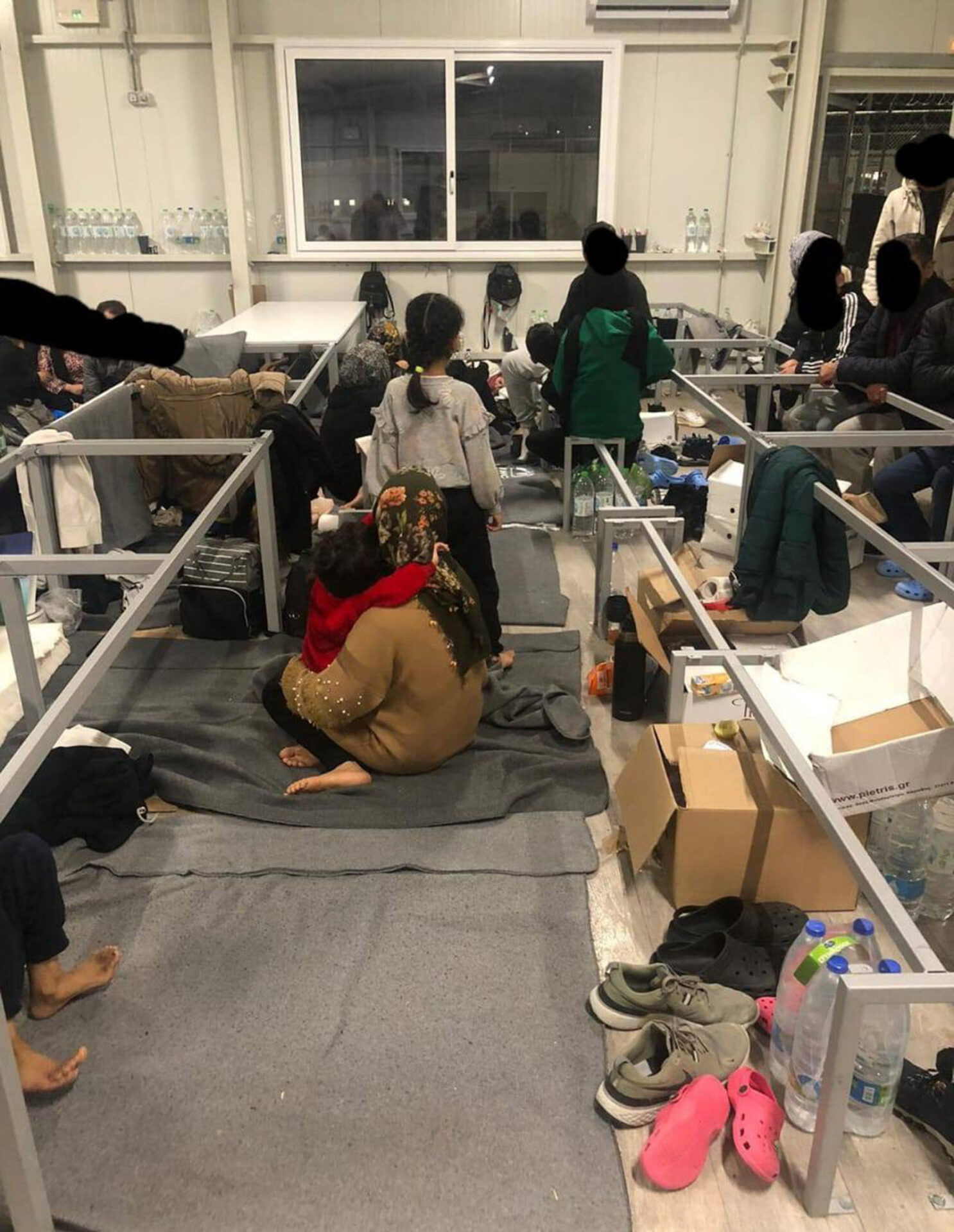
According to multiple NGOs working in the camp, new arrivals are sleeping on the floors among containers. Samos Volunteers, an organisation supporting refugees and asylum seekers, says that residents arriving in winter are not being provided with shoes or warm clothing. Camp officials are also reportedly evicting residents with asylum status before they have organised safe accommodation. Greek law states that refugees must vacate government accommodation within 30 days of gaining their status.
Serah cradles her three-month-old baby in the private room of an NGO in Vathy. She, her husband and their three children — aged five, three and three months — were evicted from Zervou in January, a month and a half after receiving refugee status. Camp officials gave the family five minutes to pack their things. When her husband asked for more time, police threatened him with violence, she says. They have yet to find permanent accommodation.
“You know we are refugees, we start from scratch, no money, nothing,” she said. “Now we have to survive, find food and we know that even if our friends help us, it can only be temporary.”
In October 2023 the migration ministry suspended media access to Zervou, prompting an outcry from journalists’ unions and press freedom organisations. Giorgos Skordilis, a migration ministry spokesperson, responded to questions about reported problems at the camp by email, blaming scant rainfall for water shortages across the island, and said additional supplies were being delivered to the camp “at great cost”.
In a written statement, the European Commission, which funded the centre, made it clear that responsibility for any issues at the Zervou camp lay with the Greek authorities: “Member states are responsible for applying the EU law, and they receive support from the Commission both financially and operationally as needed.”
From emails sent to Brussels by EU officials on Samos — obtained via freedom of information requests made by I Have Rights and seen by Hyphen — it is clear the EU is aware there are problems at Zervou. They describe overcrowding and residents being housed in classrooms “since all regular accommodation places are exhausted”, water shortages, slow asylum processes and a lack of interpreters. Publicly, however, EU Commissioner Ylva Johansson continues to praise “tremendous progress in managing migration” by the current conservative Greek administration.
Greek authorities blame a surge in arrivals last autumn for problems at its Samos facility. Close to 8,000 asylum seekers arrived on the island in 2023, four times more than in 2022. “Thanks to the efforts of all the facility’s staff, the situation has been difficult but manageable,” Skordilis said.”The decline in the number of irregular arrivals is expected to normalise the situation.” In response to allegations of police violence, the migration ministry said that all complaints filed through official channels had been investigated thoroughly and none confirmed.
Others, however, maintain that the Greek government is failing the thousands of people detained at Zervou. “Rather than blaming people seeking safety, the ministry should take responsibility for the fact that they have lost control of the Samos CCAC,” said Dodd at I Have Rights. “An increase in asylum seekers over the summer months is predictable, yet the authorities were unprepared. As a result, they are detaining thousands of people in utterly degrading conditions.”
 Newsletter
Newsletter

